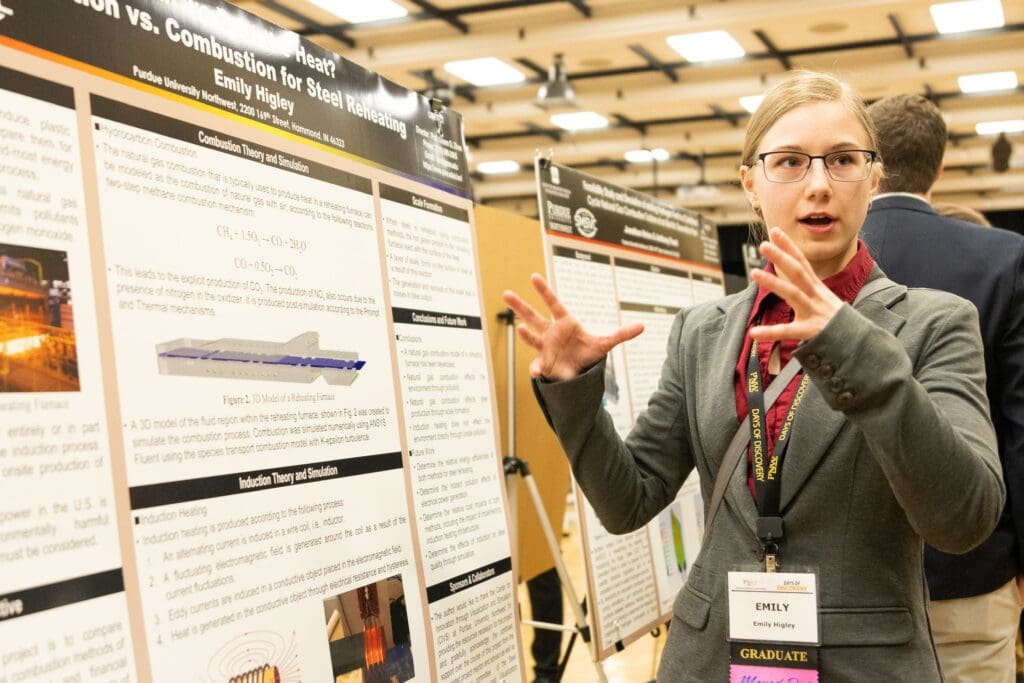Research Assistant Opportunities
Graduate staff appointments offer a tuition remission and a small monthly stipend. Staff may work as teaching assistants, research assistants, or graduate professionals. These positions are very competitive since there are far more applicants than positions available.
The Center for Innovation through Visualization and Simulation (CIVS), established in 2009, is a multidisciplinary, multi-million-funded research center that applies cutting-edge computer simulation and visualization technologies to solve real-world problems with academic industry and community partners. With its missions in innovation, application, and education, CIVS is globally recognized for its innovative approaches to developing solutions to complex problems and providing a collaborative, conducive, and supportive environment and culture for students and staff to learn and grow technically and professionally.

CIVS has made significant educational and economic impacts, serving as a showcase for PNW and the NWI region, highlighting the region’s commitment to innovation, cutting-edge technologies, collaboration, high-quality work, and real-world problem-solving.
CIVS houses the nationwide Steel Manufacture Simulation and Visualization Consortium (SMSVC) formed in 2016, where faculty, staff, and students collaborate with 15 SMSVC member companies to provide innovative solutions to address critical energy, environment, reliability, productivity, smart manufacturing, workforce development, and safety issues.
- Graduate staff positions are available on a quarter-time and half-time basis. Three-quarter time and full-time positions or students with multiple positions totaling three-quarters or full-time will not be allowed without prior approval from the Director of Graduate Studies. The hiring department is responsible for verifying that the student does not hold appointments that will total over half-time.
- Applicants must be enrolled as a graduate student in a degree-seeking or teacher license program and be registered for at least three credit hours of graduate level (50000 or above) course and/or research work during the entire appointment period.
- The appointment must be in effect during the first six weeks of a semester or July 1 of the summer session. If an appointment terminates within the first six weeks after the start of a semester or before July 1 during the summer session and the coursework is continued, all fees will be assessed for the semester or summer session. Hybrid Learning Experience at Purdue University Northwest (Hammond Campus).
- Graduate students appointed as graduate staff for the 2023/2024 academic year are granted a tuition remission in addition to the pay received for the hours worked. The tuition remission leaves the student to pay $897.43 per semester ($448.72 for summer 2024) plus lab fees, differential fees, special course fees, and workshop fees. Tuition and fees are subject to change every academic year.
- The Graduate Staff Fee Remission Form is available through the Bursar’s Office. A fee remission form must be submitted each semester a student holds a graduate staff position. The student must complete the fee remission form and submit it to the employing department for the proper signature.
- We strongly recommend that signed fee remission forms be submitted to the Graduate Studies Office (Lawshe 212) no later than two weeks after the position appointment.
- Students enrolled in the summer are eligible for the summer fee remission if they held a graduate staff position in the prior spring semester. They will also be appointed to a graduate staff position in the fall semester. A student who had a graduate staff position in the spring semester but will not hold one in the fall semester because he or she will graduate during the summer may be granted a remission for the summer session.
Application coming soon!
Contact Us
civs@pnw.edu
(219) 989-2765
Hammond Campus, PWRS 121